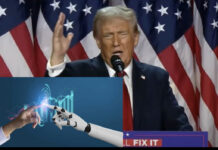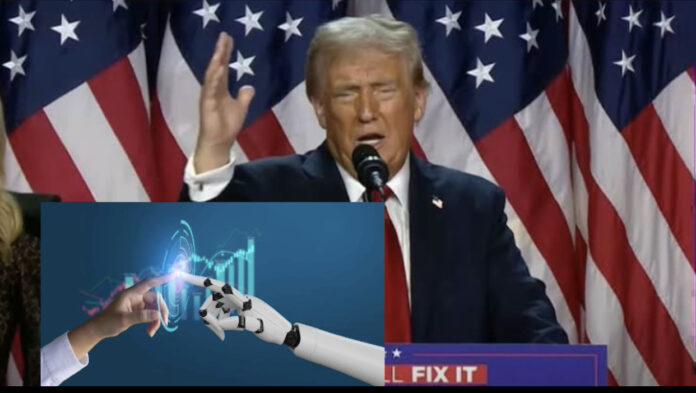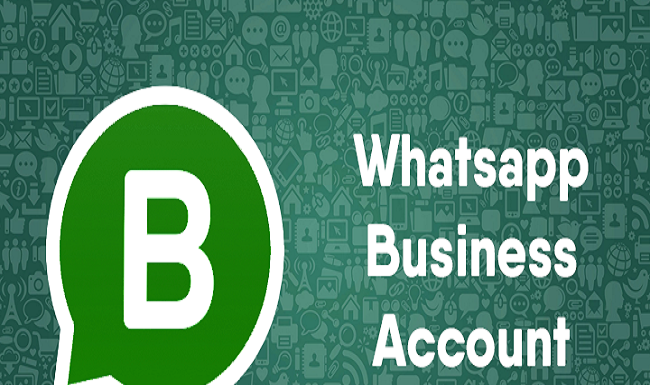With Donald Trump back in office, one of the central topics on his agenda has been technology and, specifically, artificial intelligence (AI). His campaign has placed emphasis on balancing technological advancement with economic opportunities for small businesses.
This article will explore Trump’s campaign promises related to AI and how his policies might affect small businesses in areas such as regulation, accessibility to AI resources, workforce training, and data privacy.
1. Regulation and Deregulation of AI Technologies
- Campaign Promise: Trump’s stance on regulation is generally pro-deregulation, aiming to reduce what he views as restrictive policies that may hinder innovation. His administration may propose guidelines to prevent what he might describe as “excessive” AI regulation, emphasizing a free-market approach to spur AI innovation.
- Impact on Small Businesses: For small businesses, relaxed regulations on AI development and deployment could mean fewer legal and financial barriers to adopting AI tools. Without the fear of extensive regulatory costs or penalties, more small businesses might feel confident in implementing AI-driven solutions for customer service, sales, and logistics. However, the lack of stringent oversight could also mean businesses need to exercise caution to avoid using biased or flawed AI systems that could lead to reputational or legal risks.
2. Access to AI Resources for Small Businesses
- Campaign Promise: Trump has proposed initiatives aimed at making AI technologies more accessible to smaller enterprises. This includes funding or incentives for tech development hubs that could help small businesses connect with AI service providers, access affordable tools, and receive guidance on integrating AI into their operations.
- Impact on Small Businesses: If his administration follows through on these initiatives, it could reduce the cost barrier to adopting AI, allowing small businesses to compete with larger companies on a more level playing field. Access to affordable AI tools could help small businesses streamline operations, automate repetitive tasks, and enhance customer engagement. Additionally, grants or tax breaks for AI adoption could help reduce upfront costs.
3. Support for Workforce Training and Upskilling
- Campaign Promise: Recognizing the potential workforce displacement that AI could cause, Trump has suggested funding for workforce upskilling programs to help workers transition into roles involving AI technologies. This could include partnerships with community colleges, trade schools, or online education providers.
- Impact on Small Businesses: For small businesses, this commitment to workforce training could be a significant benefit. Employees who receive AI training can help small businesses operate AI systems and improve productivity, thus offsetting some of the job automation concerns. The availability of a more tech-savvy workforce could help small businesses adopt AI more confidently and at lower costs, as they would not need to rely solely on high-cost technical experts.
4. Emphasis on Data Privacy and Security
- Campaign Promise: While Trump’s campaign has focused on AI innovation, it has also noted the importance of protecting consumer data privacy. His approach to data privacy might involve guidelines to protect consumer information while minimizing stringent compliance obligations.
- Impact on Small Businesses: A balanced approach to data privacy could benefit small businesses by allowing them to use consumer data for AI-driven insights without overwhelming compliance burdens. Small businesses would still need to ensure they handle data responsibly, but a less restrictive privacy framework could ease operational costs and encourage more businesses to adopt AI for personalization and customer analysis.
5. AI in Trade and Economic Policy
- Campaign Promise: Trump’s campaign has mentioned the role of AI in improving trade negotiations and economic decisions, emphasizing AI’s role in analyzing global markets and creating stronger economic opportunities within the U.S. This might extend to providing trade advantages or subsidies for businesses that incorporate AI to boost competitiveness.
- Impact on Small Businesses: Small businesses involved in manufacturing or exporting might see benefits if AI-driven policies enhance their market access or streamline logistics. Moreover, economic policies favoring AI integration could foster a more competitive market, potentially benefiting businesses across sectors by reducing operational costs and promoting growth.
6. Concerns about AI-driven Automation
- Campaign Promise: Trump’s campaign also acknowledges the challenges of automation on employment. While he supports innovation, his administration might propose policies aimed at reducing the speed of AI-driven job displacement to protect traditional employment sectors.
- Impact on Small Businesses: While automation can improve efficiency, small businesses reliant on customer service, manual labor, or highly personal services may welcome policies that encourage a measured approach to AI automation. Balancing automation with human jobs could help these businesses maintain their workforce while gradually implementing AI technologies.













































